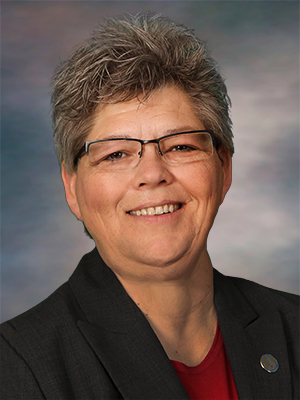
COVID-19 is now responsible for the deaths of more than 100,000 residents and staff in the 15,000 nursing homes in this country. I’ve been in this field 40 years —as a certified nursing assistant, an administrator, company executive and now as head of NAHCA — and I have never seen so many CNAs feel as helpless, hopeless and terrified as they have been since March.
Yet, here we are in the third wave of this invisible enemy, and CNAs are STILL in the same position they were in back then. They still feel helpless, hopeless and terrified.
What is different now is that many more of them are dead or sick from COVID-19.
Many have left their jobs in fear of getting the virus or in frustration from not having enough PPE to protect them. Some have been forced to use up their sick-time or other leave because of quarantine requirements after an exposure, and many more are still making an average of $13 per hour but caring for more residents on their shifts than they were pre-pandemic.
The cost of work
As I write, one of my board members — a CNA at the same nursing home for the last 25 years — lies in her bed at home, gravely ill with COVID-19 and without pay. Before she fell ill, she had already used her paid leave due to quarantine requirements, and now she must bear the brunt of the expense of this savage virus because she cared so deeply for the elders she serves. She is paid so little that she cannot afford insurance.
The media has tried to cover this crisis with some objectivity, but many outlets have placed blame at the hands of nursing home owners and operators, which is where it truly does not belong. The root of the problem is an ageist and outdated system of care that does not value elders nor the people who care for them.
Nowhere is this more evident than in the measly Medicaid rates that Centers for Medicare & Medicaid Services and state governments pay to reimburse nursing homes.
In Oklahoma, for example, the daily Medicaid rate that goes to nursing homes to pay for the board and care of one of its residents is just $150. For that amount of money, you could stay in a hotel room for less than 24 hours, but what you would not get is help going to the bathroom, nor would you get help turning from side to side every two hours to avoid getting bedsores. Moreover, you would certainly not get meals, snacks or supplements.
A rate of $150 for a nursing home resident must cover all food, all care, a bed in a room often shared with someone else, and care provided by a single CNA and, sometimes, a nurse. You probably don’t need to calculate real costs to know that it adds up to much more than $150 per day. Yet, some 15,500 nursing homes must figure out how to care for their elders on rates like this. The average Medicaid reimbursement among all states was around $206 per day, per resident, according to a 2017 NIC Skilled Nursing Report.
Talk is cheap
Having worked in and for nursing homes for the majority of my career, I believe that most are doing the best they can amid a constrained, complex and challenging system. When owners and operators look for ways to cut expenditures to continue operating despite inadequate reimbursement rates, typically the first thing to be cut is direct care wages.
The care of our nation’s most vulnerable elders is in the hands of the CNA workforce, and as we struggle through what will likely be another six months of this pandemic, the support for these frontline warriors is still inadequate. It is still not enough to keep them from leaving careers they love. We are at an inflection point, and the time for CMS, for Congress and other policy makers to act is now.
We cannot continue to say we respect our elders and allow them to live in these conditions, point fingers at good providers and pay CNAs and others on the frontline of nursing homes so poorly.
We can talk about this problem for another 40 years, but unless we start valuing older adults and those who care for them, nothing of consequence will change. And then what will we do when the next disaster strikes? We do not need more talk. We need commitments and declarations — now.
Lori Porter is the CEO of the National Association of Health Care Assistants. She started her career as a CNA and later became a licensed nursing home administrator and regional operations director for 10 skilled nursing centers before co-founding NAHCA. Porter is the author of “Everything I Learned in Life I Learned in Long Term Care” and served on the 2020 White House Task Force’s Coronavirus Commission on Safety and Quality in Nursing Homes.





